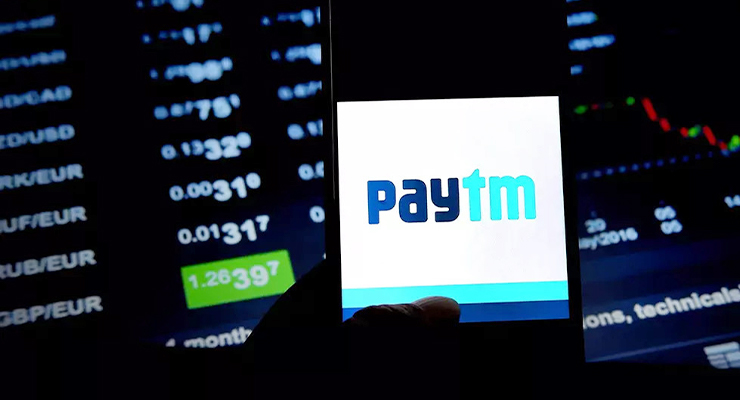Paytm shares slide as anchor investors’ lock-in period expires

Shares After a lock-in period for anchor investors in the company’s initial public offering ended on Wednesday, One97 Communications Ltd., the operator of fintech platform Paytm, fell as much as 13% to its lowest level since a disastrous launch last month. Paytm’s stock plummeted more than 27% in its first day of trading on Nov. 22, following India’s largest IPO in a record-breaking year for domestic IPOs. The stock has lost 13 of the last 18 sessions, including today’s session.
The stock dropped as much as 13.4% to its lowest level since its launch early on Wednesday. It recovered part of its losses to close 7.72 percent lower at Rs 1,380.05, versus the offer price of Rs 2,150.Paytm, backed by SoftBank and Ant Group, raised $2.5 billion in its initial public offering, with $1.1 billion coming from institutional investors.

While several investors questioned Paytm’s lack of earnings and its high enterprise value of about 27 times gross profit, the magnitude of its price drop at the time of its IPO stunned many, wiping $5 billion off the IPO valuation.”Paytm’s fundamentals have not changed,” said Suresh Ganapathy, research analyst (financials), equity research at Macquarie Capital. “Their business model is complicated and their path to profitability is unclear, and the anchor lock-in period expiring is allowing some people to exit, and nothing has changed.” Since the debu, his target price for the stock has been Rs 1,200.
Vijay Shekhar Sharma, the founder of Paytm, who sobbed tears of delight at the opening ceremony last month, later told Reuters that he was unconcerned about the decline and that he did not regret listing in India.Paytm was launched by Sharma in 2010 as a platform for cell phone recharges, and it grew swiftly after Uber Technologies Inc. made it a speedy payment option in India. Its popularity grew even more in late 2016, when New Delhi imposed a surprise ban on high-value currency notes, boosting digital payments.









